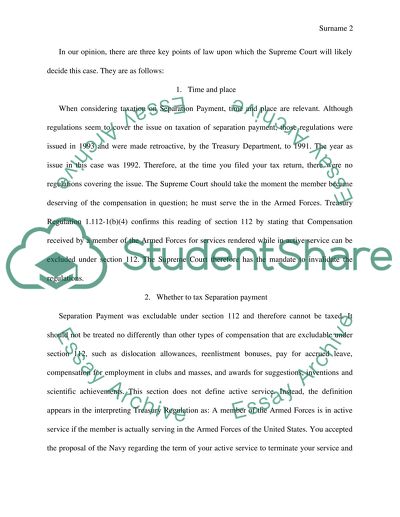Federal Tax Case Research Paper Example | Topics and Well Written Essays - 750 words. Retrieved from https://studentshare.org/finance-accounting/1470627-federal-tax-case
Federal Tax Case Research Paper Example | Topics and Well Written Essays - 750 Words. https://studentshare.org/finance-accounting/1470627-federal-tax-case.


